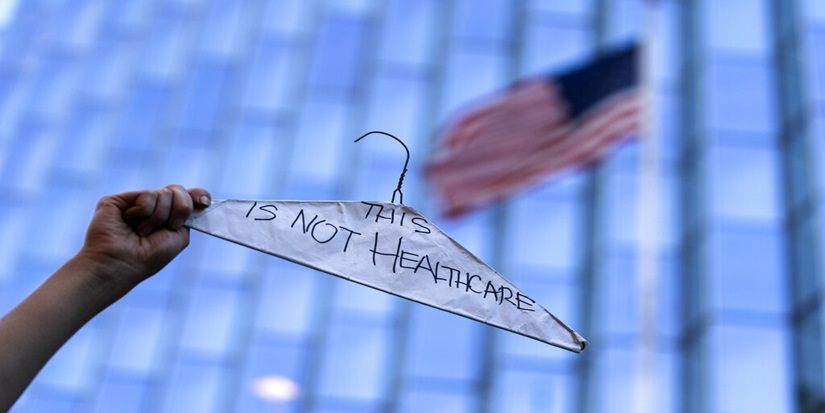One day back in the late 1990s, while waiting to board the Austin-San Jose “nerd bird” flight, I saw a familiar face at the gate: Dell founder Michael Dell. He was wealthy and famous even back then. Yet there he was, waiting around with everyone else. No bodyguards, no special treatment, no apparent fear of disgruntled customers.
Fast forward to 2024.
Another corporate leader, UnitedHealthcare CEO Brian Thompson, on a similarly unprotected walk down an NYC street, was shot and killed in what looks like a planned murder.
Social media erupted in anger—not at the murderer, but at Thompson, his company, and the entire health insurance industry. A startling number of Americans seemed glad to see someone “fighting back.”
The days of CEOs walking anywhere alone are probably over now. Executive protection is a new bull market.
It should go without saying (but apparently doesn’t) that murder is wrong. I’m glad the police caught a suspect who will now face justice. I hope the people who applauded this crime were just reacting emotionally.
Yet their health insurance nightmare stories are real. Our system rewards insurers for saying “no” as often as possible. This is intensely frustrating for millions of patients and physicians.
US healthcare has multiple problems. Insurance headaches aren’t necessarily the biggest one. But it’s still worth some thought.
Giant Costs, Tiny Benefits
What insurers should do is pay legitimate claims for medically necessary services while filtering out ineffective or abusive spending. This would minimize costs for everyone without harming those who really need care.
That’s the theory. In reality, the industry’s methods seem haphazard, at best.
Here’s an example from Dr. Gabriel Bosslet, a pulmonary and critical care physician at the Indiana University health system.
“I get a note in my inbox that a patient of mine was denied inhaled budesonide for their asthma. This medication is generic. It is cheap ($31 for a month supply on costplusdrugs.com). This patient has been stable on this med for some time. Seems like a no-brainer.
Budesonide is administered via a nebulizer. My patient is unable to use an inhaler because of an intellectual disability. They wanted the patient to try an inhaler first. They are unable to, as I had written why clearly in my note AND on the prescription, trying to avoid this administrative hell.
But alas, it needs a prior authorization. My health system has hired a CADRE of people to do prior authorizations. But this one was denied even after that was performed.
So I got a message that in order to appeal it I have to call a 1-800 number... I call and get a phone tree. I yell ‘TALK TO A PERSON’ 5 times after ‘appeal a denial’ didn't trigger anything with the phone robot.
Finally, I get a human on the phone. Thank God. This person was very nice, just doing their job, which was to direct me to download the appeal form which was found buried in a website (essentially unfindable). They had to walk me through it. Holy s--- I was floored. Why couldn't they have just sent me this in the first place?
This was an 8-minute endeavor thus far just to get the form, then I have to fill it out. They ask for the ‘member number.’ No physician knows any patient’s ‘member number.’ I have already filled out the name, DOB, address, and phone. I'm getting angrier.
Filling out the form took me 6 minutes (it was 3 pages). I put it in the ‘to fax’ tray. So now we wait. (It took) 14 minutes of my day for a single cheap med for a single patient. I have a lot of patients on a lot of meds. This is why physicians are pissed and why prior authorization is b-------.”
Think about that little story multiplied by thousands of physicians and millions of patients. Giant costs, tiny benefits, leading to a less healthy population. It reduces the labor supply and encourages excessive debt. At the macro level, this is the opposite of efficiency.
But for the insurer it makes perfect sense to
The amount saved may be small, but insurers keep 100% of it. Others pay the costs.
I have a story, too.
A few years ago, my wife needed a spinal procedure. Our insurer at the time—which I won’t name but it begins and ends with the letter A—said the treatment wasn’t “medically necessary.”
Being keenly aware how much pain my wife was enduring, I started to dig.
I found the company’s own documents said claim denials would be made only by a physician qualified in “the same or equivalent specialty” as the physician who was ordering the service.
Further digging revealed this denial came from an internal medicine doctor.
Internists are great. I see one myself. But I knew A---a’s staff internist was not remotely equivalent to the neurosurgeon who had recommended this treatment.
So, I asked if they had any clinical studies showing internists are “the same or equivalent” to neurosurgeons.
A---a never answered my question… but someone there suddenly decided my wife’s procedure was “medically necessary” after all.
Squeaky Wheels
Here’s what I think is happening.
The strategy, it seems, is to a) make the process difficult, b) grease the squeaky wheels, and c) let everyone else suffer.
As a purely commercial matter, that’s the right call. Insurers are trying to maximize profits, as all businesses do.
The problem is these normal market incentives produce bizarre, expensive, and often harmful results when applied to medical decisions across the economy.
Yet our system still relies on such false signals… and we wonder why Americans are unhealthy and healthcare costs so much.
See you at the top,





